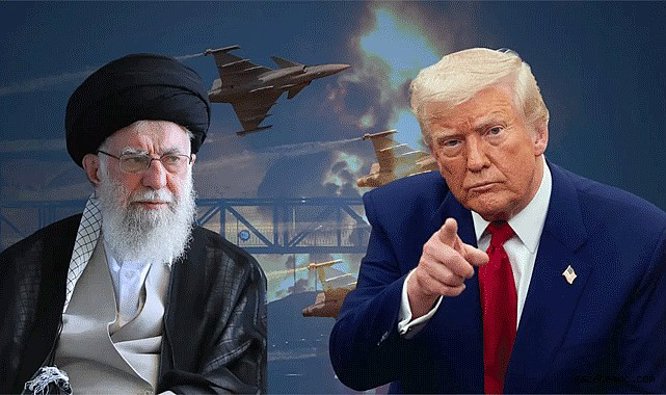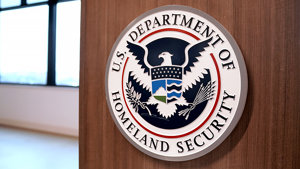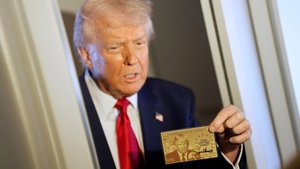
Iran Weighs Talks as Cyber Threats, Political Divisions Mount
Iran signals readiness for talks post-strikes, as cyber threats rise and U.S. faces political divisions over Trump’s Iran strategy.
Iran Leaves Diplomacy Open Following Trump’s Military Strikes
Iran has indicated that it remains open to future diplomatic engagement with the United States, even in the aftermath of President Donald Trump’s military strikes on Iranian nuclear facilities. Iranian Deputy Foreign Minister Abbas Araghchi, speaking to CBS News, stated, “The doors of diplomacy will never slam shut,” though he cautioned that renewed negotiations would require assurances that the U.S. will not revert to military attacks during talks. “I don’t think negotiations will restart as quickly as that,” Araghchi added, emphasizing the need for time and trust before reengaging.
According to Behnam Ben Taleblu, senior director of the Foundation for Defense of Democracies Iran Program, this diplomatic overture reflects Tehran’s strategy to buy time and stave off additional military pressure. “Tehran’s strongest weapon when it is weak is actually diplomacy,” Taleblu explained, suggesting that Iran’s willingness to talk, even when at a disadvantage, serves to prevent internal dissent and international escalation.
President Trump, meanwhile, offered a mixed message regarding the prospect of an agreement. Speaking after a NATO summit in the Netherlands, Trump said, “We’re going to talk to them next week, with Iran. We may sign an agreement, I don’t know. To me, I don’t think it’s that necessary.” Trump insisted that Iran’s nuclear program had been destroyed and downplayed the urgency of a formal deal, stating, “I don’t care if I have an agreement or not.” However, he also wrote on Truth Social that he is not currently speaking to Iran. White House Press Secretary Karoline Leavitt clarified that while communications with Iran are ongoing through special envoy Steve Witkoff, the president himself is not involved directly.
Iran-Linked Cyber Threats Target Trump’s Inner Circle
Amid these diplomatic maneuvers, U.S. officials face a new cyber threat tied to the recent escalation. An Iran-linked hacking group has threatened to release a cache of emails purportedly stolen from key members of Trump’s inner circle, including chief of staff Susie Wiles and confidante Roger Stone. The group, which previously leaked emails during the 2024 campaign, claims to possess 100 gigabytes of sensitive communications.
Attorney General Pam Bondi condemned the breach as an “unconscionable cyberattack,” while FBI Director Kash Patel pledged to bring the perpetrators to justice. Patel emphasized the importance of protecting secure communications for administration officials, warning that “anyone associated with any kind of breach of national security will be fully investigated and prosecuted.”
Marci McCarthy, spokesperson for the Cyber and Infrastructure Security Agency, described the threat as an attempt “to distract, discredit and divide,” characterizing it as a calculated campaign to undermine President Trump and his administration. U.S. cyber officials cautioned that despite a declared ceasefire and ongoing negotiations, Iranian-affiliated actors may continue malicious cyber activity, especially against American companies and infrastructure.
U.S. Political Debate Heats Up Over Iran Policy and Middle East Strategy
At home, the fallout from the strikes and subsequent cyber threats has reignited fierce debate among public figures over the future of U.S. policy in the Middle East. Actor John Cusack, known for his outspoken political views, stirred controversy by advocating on social media for Iran to acquire a nuclear weapon, arguing it was the “only way to deter U.S. and Israel from bombing every country in the Middle East.”
Cusack’s comments, posted after the U.S. conducted B-2 stealth bomber strikes on Iranian sites, were the latest in a series of public criticisms targeting both Israeli and American actions in the region. The actor has described U.S. support for Israel as backing a “genocidal regime,” and has condemned strikes in Lebanon and Gaza. He also praised the New York City mayoral Democratic primary win by democratic socialist Zohran Mamdani as a rebuke to what he views as establishment and pro-war interests.
As Iran weighs its diplomatic options and cyber threats escalate, the Trump administration faces continued scrutiny from political and security leaders, both at home and abroad. The outcome of ongoing talks, security measures, and political debate will shape the next phase of U.S.–Iran relations—and influence the broader landscape of Middle East diplomacy and national security.






